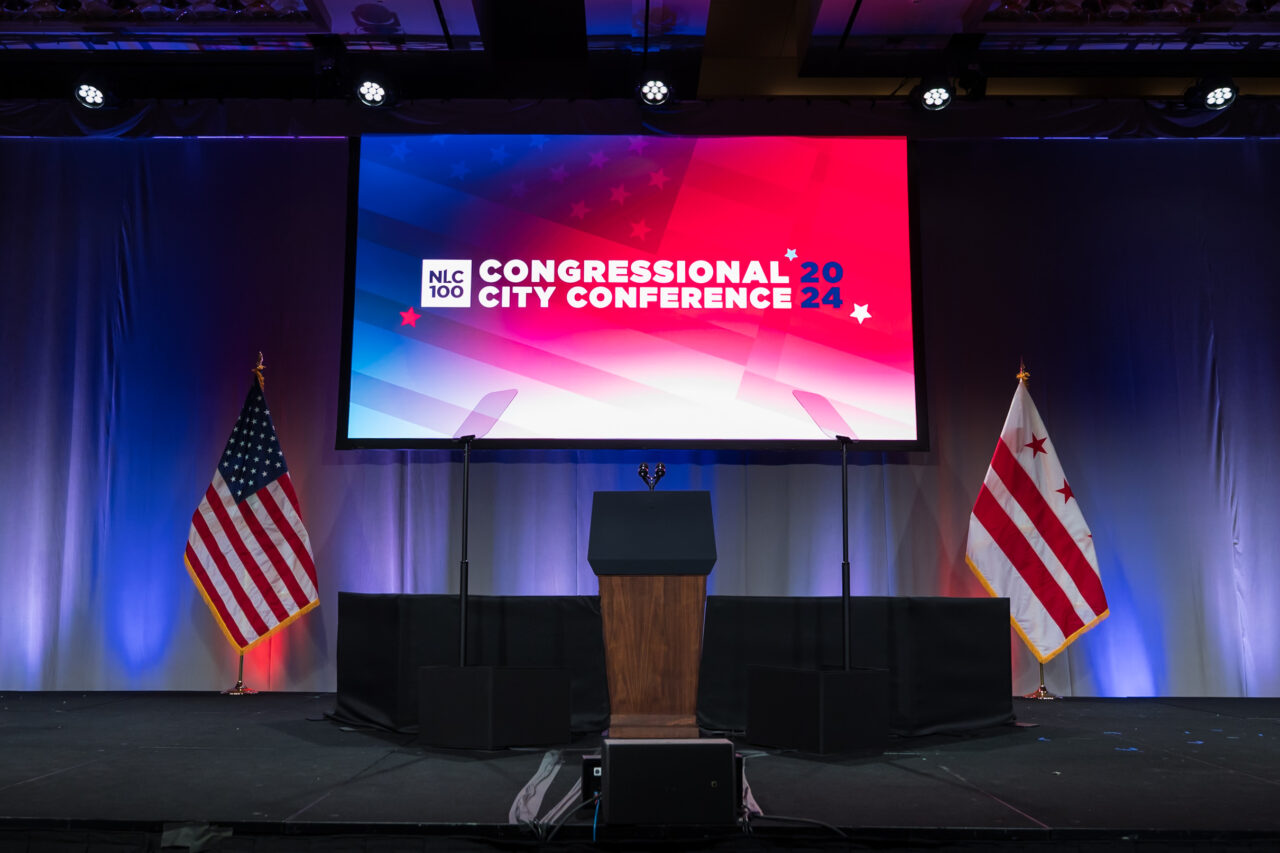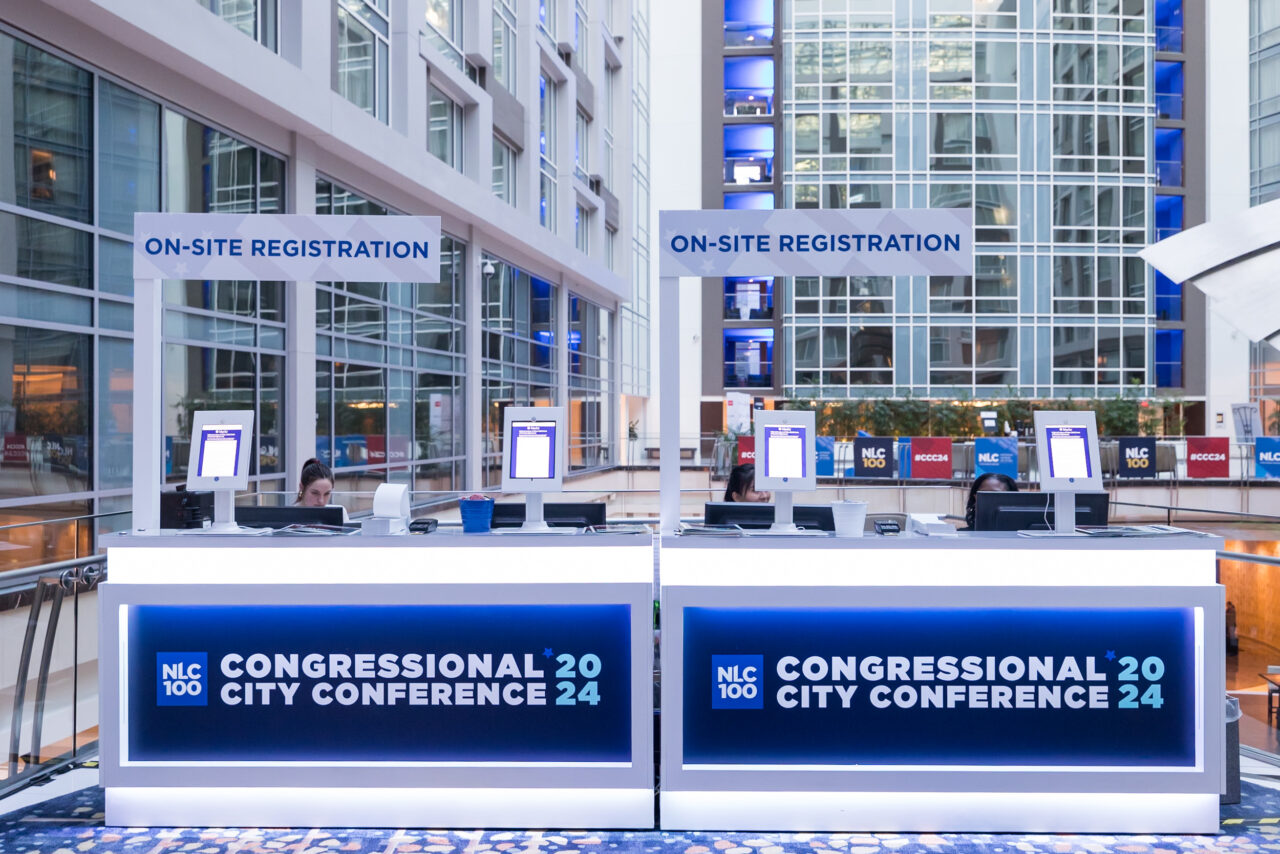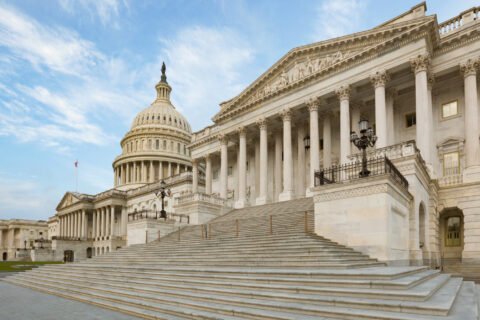As part of the 2024 Congressional City Conference, the National League of Cities launched an Artificial Intelligence (AI) Advisory Committee to help local leaders demystify, de-risk, and ultimately harness the opportunity that this rapidly evolving technology represents.
The committee will serve as a platform for a group of local leaders, including mayors, city council members, city managers, and chief information/technology officers, to engage with technical experts, share insights, and explore innovative solutions for responsibly integrating AI into municipal government. The inaugural meeting of the AI Advisory Committee aimed to demystify AI and equip local leaders with insights into its definition and potential applications.

The committee welcomed Google Policy Manager Joe Dooley and District of Columbia Interim Chief Technology Officer Stephen Miller, who provided valuable insights on the history of AI to date, what is unique about the current moment, and where trends are emerging for city governments. These speakers, along with committee members, worked to demystify AI and contemplated the preliminary steps that cities can take to prepare for this technology.
Takeaways: Demystifying and Defining
A critical discussion revolved around addressing biases in AI models and cities, beginning with foundational values and principles for how they adopt and adapt this technology. Participants deliberated on strategies to ensure the ethical and unbiased use of AI, recognizing the importance of building and maintaining trust in public services, especially as they may change. The speakers also highlighted AI’s capacity as a force multiplier, citing examples such as the implementation of AI-powered cameras on municipal waste trucks. This innovation enabled the identification of potholes, resulting in significant cost savings.
A survey conducted among committee members revealed a range of perceptions of the risks and benefits of AI, reflective of the spectrum of city leader perspectives across the country. While optimism prevailed regarding AI’s impact on government operations, concerns lingered regarding data privacy, cybersecurity, and workforce training. Committee members identified automating routine tasks, improving staff efficiency, enhancing customer service, and infrastructure improvements as the areas most opportune to be impacted by AI in government operations.

Step 0 for Cities to Prepare for AI
At the committee launch, speakers emphasized the transformative potential of AI and underscored the importance of preparation. They urged city governments to focus on data readiness, categorization, and addressing privacy and cybersecurity concerns. Miller introduced the committee to DC’s AI Values and Strategic Plan as a sample framework for responsible AI integration.
This conversation produced several actionable first steps for local governments to consider to prepare for AI. These include:
- Conducting audits of city agencies’ data assets and documenting all structured and unstructured data.
- Forging strategic partnerships for AI training tailored to diverse roles within city government.
- Preparing financially for AI initiatives by assessing how much your city can invest in AI resources.
Google is a founding partner of NLC’s AI Advisory Committee. The next steps for the committee include exploring the role of cities in de-risking AI for their own operations and for their residents. Learn more about the AI Advisory Committee and reach out to innovation@nlc.org with any questions.








